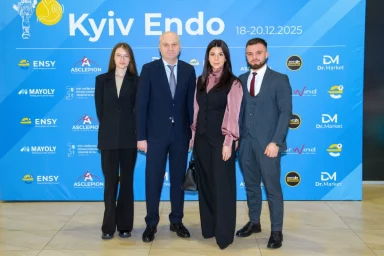Manufacturing Localisation for Public Procurement of Energy and Critical Infrastructure Goods in Ukraine
Contents
Today, Ukraine is one of the countries offering exceptional investment conditions to large foreign companies. As a result, despite the challenging geopolitical situation, the country has managed to create an attractive investment climate that has already drawn interest from major investors.
The competitive advantages include government support for large investments, low tax burden, good geographical location, cheap and skilled labour with fluency in English, low cost of production facilities, and urgent demand in many areas, including the energy industry.
The economy of Ukraine is recovering and continuing to grow despite the war. In 2023, it grew by 5.3% and keeps growing this year, according to International Monetary Fund forecasts. Due to the massive shelling of energy infrastructure, generating and distribution capacities were seriously damaged, resulting in a significant electricity shortage.
This situation created a huge demand from the state, businesses, and household energy consumers for a wide range of equipment, including solar panels, battery substations, and other components.
How does public procurement in Ukraine work?
The government makes equipment purchases to restore and modernise the energy sector. All purchases are made transparently and competitively through special electronic services by the Law of Ukraine “On Public Procurement”. The main digital tool for public procurement is service Prozorro.
According to the Minister of Economy of Ukraine, in 2023, the procurement volume conducted through the Prozorro system tripled to UAH 480 billion (EUR 10,4 billion) compared to the previous year. As of recent months, more than 80% of procurement funds are spent through the Prozorro system.
Moreover, procurement stimulates domestic production of goods and services and boosts local businesses and manufacturers ready to contribute to the country’s reconstruction. The government’s top priority is to support domestic producers and attract foreign investment in the real sector of the economy.
Public procurement offers advantages for businesses, including the potential to increase product sales, market stability, a clear procurement process, and reliable state funding.
Manufacturing localisation requirements
To become a participant and win a tender for some categories of goods, you have to meet the requirements for manufacturing localisation rate. For example, such requirements cover the procurement of generator sets, transformers, capacitors, pumps, compressors, water wheels, hydraulic turbines, and other equipment required in the energy industry or other critical infrastructure. The relevant provisions were established in 2022 for ten years for the procurement of appropriate goods with a purchase value exceeding $5 000 (200 000 UAH). According to the current plan, the manufacturing localization rate for the subject of procurement should be 25% in 2025. The respective indicator should be increased by 5% annually until it reaches 40% in 2028.
Furthermore, the manufacturing localisation rate is determined independently by the manufacturer of the procured goods and confirmed by the Ministry of Economy.
Supply and Demand
The current trend shows a huge demand for components and goods for the energy sector. According to many experts, the shortage of generating capacity will be felt for at least another three years, and the end of the war will not solve this problem.
Solar power plants are the most popular type of the renewable generation in Ukraine compared to wind, hydro, and bio power plants. It accounts for 75% of all renewable energy facilities. As of mid-April 2024, there were 1369 solar power plants in Ukraine.
In addition, Ukrainian government is purchasing a lot of foreign equipment for the energy industry. The Energy Support Fund has already accumulated €500 million, which is used to purchase equipment for the energy sector.
The government cancelled import duties and VAT on all energy equipment and components, as well as simplify customs procedures for its import. This will help citizens and businesses provide themselves with alternative energy sources. Following the Prime Minister’s words, Ukraine decided to create a decentralized energy system.
For this purpose, the following steps were implemented:
- removal of customs and bureaucratic barriers to the import of generators, solar panels, storage devices, inverters and other equipment;
- support for consumers who will install their generation, especially through the provision of soft loans;
- installation of mini-thermal power plants (TPP) plants to power critical infrastructure.
The manufacturer independently determines the manufacturing localisation rate of its goods. That is done by using a formula, which includes the customs value of raw materials, the value of raw materials purchased from a Ukrainian resident supplier, and the prime cost of the goods. This figure shall be confirmed by the Ministry of Economy and included in the list of goods to be procured.
In summary, manufacturing localisation in Ukraine allows businesses to win tender bids and conduct business comfortably by selling products on the Ukrainian market with high demand while taking advantage of the benefits created by foreign investment.
How to localise your business and participate in public procurement?
To localize manufacturing facilities in Ukraine and successfully prepare for the public procurement, our first recommendation is to establish a legal entity in Ukraine. Although not required by law, establishing a legal presence in Ukraine will facilitate communication with government agencies and allow them to take advantage of all the benefits provided to Ukrainian businesses.
Additionally, the public procurement process is highly regulated, so it’s crucial to have a clear understanding of how the system works and the participation criteria. Before participating in the procurement, check the procurement history of the customer, analyse what documents it often requires and what grounds it had for rejecting the participants. Documents for participation should be submitted strictly in accordance with the customer’s requirements and legislation.
Significant attention should be given to the procurement agreement, to ensure that all terms and conditions of the supply are well defined and all details are settled as terms of the procurement agreement should not differ from the content of the tender proposal. It is important as the essential conditions of the procurement agreement may not be changed after its signing until the parties have fulfilled their obligations.
Thus, Ukraine wants to support local producers and promotes localisation of production of energy and economy-critical equipment to the maximum extent possible to avoid dependence on imports. The manufacturing localisation rate is crucial for participation in public procurement for the relevant categories of goods. Ukrainian and foreign businesses can take advantage of all the benefits of the public procurement mechanism by meeting the localisation requirements.
If you need legal advice, please fill out the form below to request it.

Oleksandr Melnyk
Partner, Head of Corporate Law and M&A practice, Attorney at law
- Contacts
- 31/33 Kniaziv Ostrozkykh St, Zorianyi Business Center, Kyiv, Ukraine, 01010
- o.melnyk@golaw.ua
- +38 044 581 1220
- Recognitions
- Lexology Index: Client Choice 2026
- The Legal 500 2025
- IFLR1000 2025 (International Financial Law Review)
- Legal 500 Green Guide 2024
- 50 Leading Law Firms Ukraine 2026

Nazarii Zeliak
Associate
- Contacts
- 31/33 Kniaziv Ostrozkykh St, Zorianyi Business Center, Kyiv, Ukraine, 01001
- n.zeliak@golaw.ua
- +38 044 581 1220

Vira Shytyuk
Head of Business Development at GOLAW
- Contacts
- 31/33 Kniaziv Ostrozkykh St, Zorianyi Business Center, Kyiv, Ukraine, 01010
- v.shytyuk@golaw.ua
- +380672393091
Get in touch
To get a consultation, please fill out the form below or call us right away:Sign up to be aware
New achievements are inspired by information. GO further, don’t miss out GOLAW news and legal alerts
Our expertise
-
- Energy and Natural Resources
- Antitrust and Competition
- Banking and Finance
- Compliance, Corporate Governance and Risk Management
- Corporate and M&A
- Criminal and White Collar Defence
- Defense in Anti-corruption procedures and regulations
- Labor and Employment
- Natural Resources and Environment
- Government Relations (GR)
- Insolvency and Corporate Recovery
- Intellectual property
- International trade
- Legal support of business and private Сlients in Germany
- Litigation and dispute resolution
- Private clients
- Real Estate and Construction
- Restructuring, Claims and Recoveries
- Martial Law
- Tax and Customs
-
- Agribusiness
- Aviation
- Chemical industry
- Engineering, Construction and Building Materials
- Environment and Natural Resources
- Financial institutions
- IT and AI
- Industry and manufacturing
- Healthcare industries, Life sciences and Pharmaceuticals
- Media, Entertainment, Sports and Gambling
- Retail, FMCG and E-Commerce
- Transport and Logistics
We use cookies to improve performance of our website and your user experience.
Cookies policy
Cookies settings







